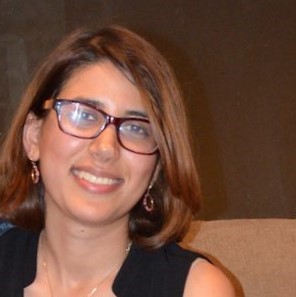 | Behnaz Arzani
Post-doctoral researcher at Microsoft Research
Behnaz Arzani’s research interests focus on Network Protocols, Network QOS-QOE Improvement, Network Diagnosis, Network Security, Applications of Machine Learning in Networking, Development of Networking Simulation and Emulation Software.
Behnaz is one of the most passionate researchers I have met. She has papers in the top conferences of our field, and she leverages her experience with real production environments to ensure that her projects are far more than just academic — a trait our field can lack. She has an intuition for problems with real impact and the uncanny ability to easily initiate new professional connections for strengthening her research. Her passion is infectious and pushes those around her to strive further.
– Robert MacDavid, Princeton University |
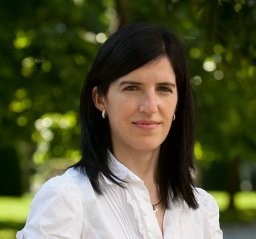 | Leyre Azpilicueta
Research Associate Professor, Tecnologico de Monterrey
Leyre Azpilicueta’s research interests focus on radio propagation, mobile radio systems, ray tracing, channel modeling, wireless sensor networks and vehicular communications.
Leyre is a rising star in propagation modeling, simulation and measurement for next generation wireless networks. For her Ph.D. in 2015 she developed a propagation tool for network planning. She has over 110 publication and has been awarded the Best Ph.D. thesis in 2016 by the Colegio Oficial de Ingenieros de Telecomunicación (Spain), the IEEE Antennas and Propagation Society Doctoral Research Award 2014, and the Young Professors and Researchers Santander Universities 2014 mobility award.
-Cesar Vargas-Rosales, Monterrey, Nuevo León, México |
 | Aruna Balasubramanian
Assistant Professor, Stony Brook University
Aruna Balasubramanian’s research interests focus on problems in the intersection of networking and systems, with a current focus on smartphones and wearable devices.
Aruna Balasubramanian is a rising star in the area of mobile systems research. Her work on mobile web, mobile offloading, mobile energy efficiency has spawned tremendous followup research and has won her several awards. Apart from being an active researcher, her organizational efforts and commitment to advancing Women in STEM are stellar.
– Samir Das, Stony Brook University |
 | Shehar Bano
Postdoctoral Researcher, University College London
Shehar Bano’s research interests focus on networked systems, particularly in the context of security and measurement. Currently, she is working on the design, scalability and applications of blockchains.
Bano’s research work holistically employs transparency as a tool to re-democratise the Internet via: (i) network measurements to expose information control, and (ii) developing and deploying decentralised systems that push control over information back to users. For this work, Bano was named to the MIT Technology Review’s prestigious Innovators Under 35 list as a ‘Visionary’ in 2018 (awarded to “exceptionally talented technologists whose work has great potential to transform the world”).
– Heidi Howard, University of Cambridge |
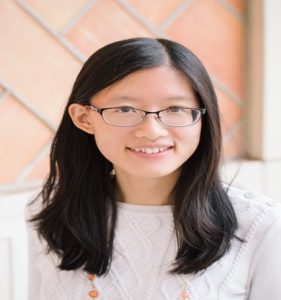 | Carlee Joe-Wong
Assistant Professor, Carnegie Mellon University
Carlee Joe-Wong research interests focus on mathematical aspects of computer and information networks/systems, with an emphasis on economic and incentive considerations. She is particularly interested in applying theoretical insights to practical system deployments.
Prof. Carlee Joe-Wong of Carnegie Mellon University has demonstrated excellence in her research accomplishments in the area of network pricing, cloud computing, and IoT, and has also co-founded a startup, DataMi. She has published in the top journals of IEEE/ACM including Transactions on Networking, Transactions on Mobile Computing, Journal of Selected Areas in Communication, Communications of the ACM, ACM Computing Survey, as well as in conferences like ACM SIGCOMM, SIGMETRICS and IEEE INFOCOM.
– Soumya Sen, University of Minnesota. |
 | Fotini Karinou
Researcher at MIcrosoft Research, Cambridge
Fotini Karinou’s research interests focus on developing optical technologies for next generation cloud computing systems and networks. She has worked on various research and development projects on optical transmission systems and networks, spanning from high-capacity optical interconnects for datacom, to metro/access, and long-haul coherent systems.
Fotini is a rising star in optical networking. She is particularly keen on driving practical impact through her research—she is currently exploring new optical interconnects for Microsoft’s data centers, having designed award-winning transceivers for metro networks and being one of the first to demonstrate a practical quantum key distribution system in optical networks. She has also served on the program committees for top optical networking conferences which reflects her growing stature.
– Hitesh Ballani, Microsoft |
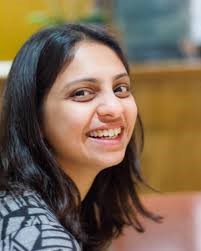 | Radhika Mittal
Post-doctoral researcher at Massachusetts Institute of Technology
Radhika Mittal’s research interests focus on computer systems and networking. She will be starting as an assistant professor at UIUC from Fall 2019, after a one year post-doc at MIT with Prof. Mohammad Alizadeh and Prof. Hari Balakrishnan.
Radhika has made impactful contributions in the areas of congestion control, datacenter transport, and RDMA networking. Among her many interesting projects, her work on TIMELY, a delay-based datacenter congestion control scheme for RDMA environments has been adopted in Google (to my knowledge), and her recent work on IRN (SIGCOMM’18) could take away a significant hurdle for large-scale RDMA deployments by removing the need for a lossless network.
– Mohammad Alizadeh, Massachusetts Institute of Technology |
 | Justine Sherry
Assistant Professor at Carnegie Mellon University
Justine Sherry’s research interests focus on computer networking; her work includes middleboxes, networked systems, measurement, cloud computing, and congestion control. Her recent research focuses on new opportunities and challenges arising from the deployment of middleboxes — such as firewalls and proxies — as services offered by clouds and ISPs.
She has made significant contributions to middleboxes and network function architectures. Her work on middleboxes has been recognized with a SIGCOMM doctoral dissertation award, the UC Berkeley David J. Sakrison prize, and paper awards at USENIX NSDI and ACM SIGCOMM. She is also a vocal proponent of networking research and outreach.
– Hari Balakrishnan, Massachusetts Institute of Technology |
 | Anna Vizziello
Research Fellow at University of Pavia
Anna Vizziello’s research interests focus on 5G Radio Technologies, Intra-Body networks, Cognitive Radio Networks, Wireless Sensor Networks. She is a Research Fellow at the University of Pavia, Italy. She received the Laurea degree in Electronic Engineering and the Ph.D. degree in Electronics and Computer Science from the University of Pavia, Italy.
Anna is an excellent researcher with very important background knowledge in signal processing, wireless and intrabody sensor networks, with a strong connection with medical sciences. She has been able to face and solve challenges in different areas, from efficient telecommunications in risky areas to energy preserving cooperative localization in wireless sensor networks, to social-based structuring of wireless nodes in cognitive networks.
– Paolo Gamba, University of Pavia |
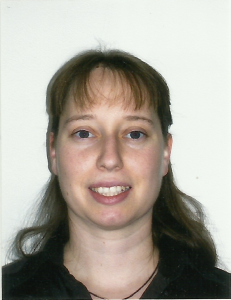 | Noa Zilberman
Fellow at University of Cambridge
Noa Zilberman’s research interests focus on open source networking and computing research, high performance networked systems, network switching architectures, computing architectures, converged interconnect, traffic management, queuing and buffering, and Internet measurements and topology.
Noa fuses both a keen-enthusiasm for networked-hardware with an extraordinary depth of expertise. Noa architected the worlds fastest switch-fabric, led the hardware engineering of the NetFPGA-SUME platform, and made important contributions with novel measurement and innovative networked-system architectures. Noa’s knowledge and hard-work inspires her students and colleagues and I can only imagine a bright trajectory for this rising-star.
– Andrew Moore, University of Cambridge |













